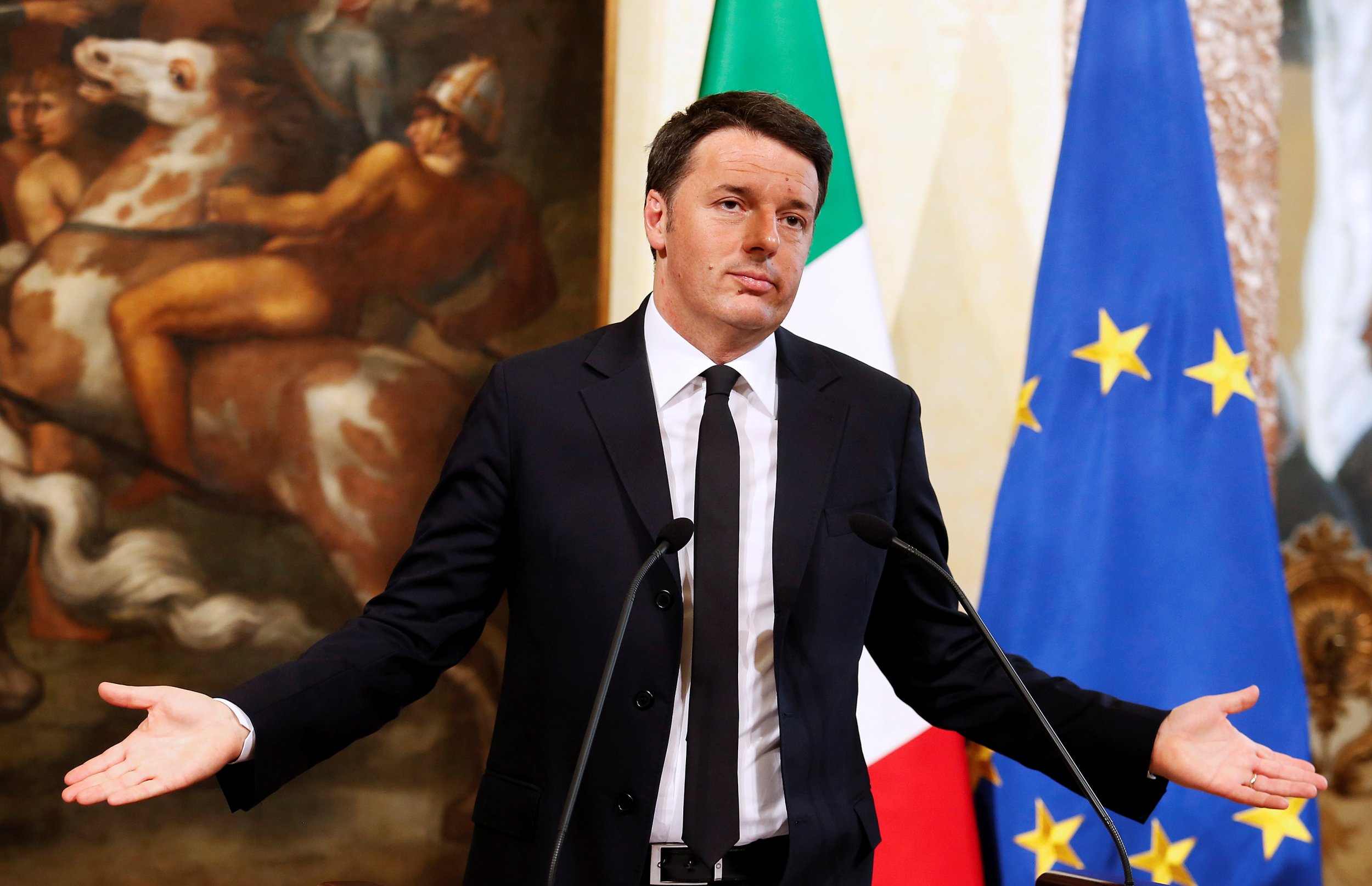
The vote is still a few days away, but Italian Prime Minister Matteo Renzi's constitutional referendum seems like yet another example of the Britney Spears theory of politics—a case of political calculation gone wrong; yet another example of a leading politician realizing that, to quote the pop star's 2000 hit—"Oops I Did it Again." In short, the polls indicate he will lose the referendum.
Mr Renzi and his center-left government propose to reform the Italian constitution by essentially abolishing the regional tier of government, which was introduced in 1970. The system will also affect parliament. The strong Senate—which Renzi says has blocked legislative proposals—will have reduced powers and will be chosen by representatives from local government. Such a reform can be sensible enough. A similar reform was passed in Germany in 2006. But unlike in Berlin, the Italian proposal is not the result of a compromise between the political parties. Renzi's Democrats forced through the proposal without calling a constitutional convention. This was criticized as amounting to gerrymandering.
But instead of seeking to accommodate the opposition Renzi turned the referendum into a vote of confidence in himself, "If the citizens vote no and want a decrepit system that does not work, I will not be the one to deal with other parties for a caretaker government," said Renzi. He is thereby echoing the French President Charles de Gaulle who held a referendum on a very similar proposal—reform of the senate and regional government reform—in 1969. Back then General de Gaulle campaigned under the slogan "moi ou le chaos"—me or chaos. The French voters opted for the latter. The French president resigned the following day. Matteo Renzi could well follow the legendary French statesman if the opinion polls are to be trusted. Like David Cameron after the Brexit referendum this year, Renzi could find himself pensioned off at the tender age of 41. To quote another line from Britney Spears, his decision to hold a referendum will not make him "stronger."
It is easy and tempting to see such referendum defeats as an indication that the voters are conservative and that they opt for simplistic and populist slogans. It has become popular to criticize democracy. Jason Brennan, an academic at Princeton University and author of the book Against Democracy, denounced the Brexit referendum on the grounds that "there is no reason to think even a tenth of the UK's population has a basic grasp of the social science needed to evaluate Brexit." He even said that British voters, like voters elsewhere, are "systematically ignorant." Interestingly, the professor did not comment on the Irish referendum on legalizing gay marriages in November 2015, nor did he comment on the fact that a majority of the Hungarians boycotted Viktor Orban's anti-immigrant referendum in October and thereby rendered the result void.
Referendums may often backfire on politicians who submit themselves to the voters. However, in reality most referendums are won. When colleagues and this writer analyzed all the 274 nationwide referendums held in Western Europe since 1800, only 31 per cent of the 274 votes resulted in defeat. In Switzerland—the country with the highest number of referendums in the world, only 25 percent of the referendums resulted in rejection. If we include Africa, Asia and the Americas the figure is even more impressive, less than 20 percent of referendums resulted in defeat.
Of course, there are some referendums that were lost by the liberal forces. But these are relatively few and far between in the greater scheme of things. It is a common misperception that voters vote against immigration. The evidence from Europe—especially Switzerland—is that voters vote for, not against immigration. Much has been made of the Swiss voters backing a ban on minarets in 2009; much less has been made of the more remarkable fact that 11 other referendums favouring more liberal immigration legislation were endorsed by the voters.
Similarly, few took notice when the Irish voted to abolish the death penalty in a referendum in 2001.
Generally speaking, referendums have often tended to result in remarkably liberal or even center-left results. "Swiss vote for tough executive pay curbs" ran a headline in 2013. To curtail executives' pay might not be considered left-wing populism but it is certainly not a sign of the right-wing extremism some have associated with referendum results in recent months.
Referendums are relatively rare, and recent history shows that politicians have a difficult time controlling them. Voters do not like to be told what to do, let alone how to vote. For this reason politicians find that referendums—to quote Britney Spears once more—can be toxic.
Matt Qvortrup is author of Angela Merkel: Europe's Most Influential Leader, published by Duckworth.
Uncommon Knowledge
Newsweek is committed to challenging conventional wisdom and finding connections in the search for common ground.
Newsweek is committed to challenging conventional wisdom and finding connections in the search for common ground.
About the writer
To read how Newsweek uses AI as a newsroom tool, Click here.








